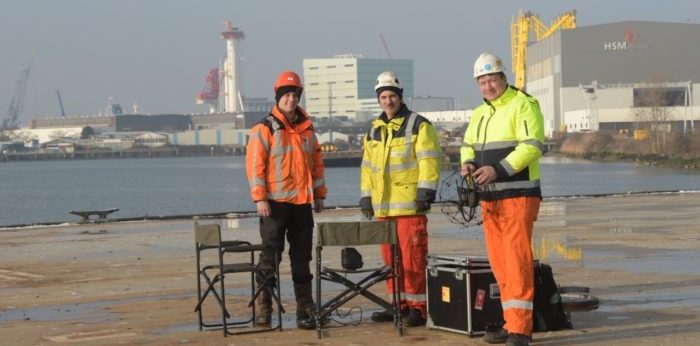RIMS BV have received two certifications from DNV GL and the Indian Class Register, to use Remote Inspection Techniques (drones) during surveys of enclosed spaces. New regulations that IACS issued, want to ensure a certain quality standard to service suppliers who want to use drone technology during close surveys.
With certification from nine Classification Societies, RIMS can showcase that drone technology with skilled pilots, is able to reduce the safety risks and offer a cost-efficient solution for inspections of assets.
[smlsubform prepend=”GET THE SAFETY4SEA IN YOUR INBOX!” showname=false emailtxt=”” emailholder=”Enter your email address” showsubmit=true submittxt=”Submit” jsthanks=false thankyou=”Thank you for subscribing to our mailing list”]
Nevertheless, drone inspections can be complex. Local permits to fly drones can vary from country to country, with restrictions on outdoor flights in some areas.
Currently, ship owners, managers and operators decide how a surveyor gains access to the areas. The options for access will depend on the type of survey, as in some instances thickness measurements are needed.
Right now, surveyors are working in unsafe conditions to conduct procedures, David Knukkel, CEO of RIMS BV, believes. He added that this situation is not sustainable, and eventually the Regulators will make the market to use the latest technology to ensure safe working practices.
RIMS BV is also investigating how it can set standards towards inspection quality in the oil and gas industry,in order to adopt the use of drones for inspection purposes.
Clear regulations have been defined towards the quality of inspections. It acknowledges the scenario of many hobby pilots applying for certification, who may have failed, due to lack of knowledge of the assets and experience to reach the required output. This diluted the market for professionals and did not install much confidence with end-users and Classification Societies to adopt the technology on a more widespread scale




























































